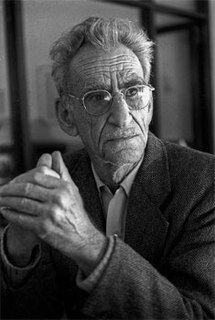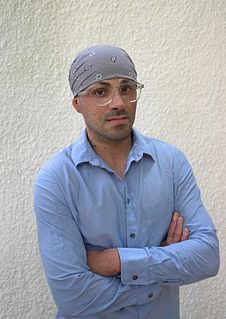A Quote by Sam Abell
My first priority when taking pictures is to achieve clarity. A good documentary photograph transmits the information of the situation with the utmost fidelity; achieving it means understanding the nuances of lighting and composition, and also remembering to keep the lenses clean and the cameras steady.
Related Quotes
Press information is serious information, but press information is also manipulated by people who want you to think that this and that happened. So it's the old thing that you still cannot trust photography at all or you have to know who is distributing the photograph. In terms of cell phone photography, I think nobody cares about a photograph anymore because they're taking so many pictures just for fun.
Composition is a side issue. Its role in my selection of photographs is a negative one at best. By which I mean that the fascination of a photograph is not in its eccentric composition but in what it has to say: its information content. And, on the other hand, composition always also has its own fortuitous rightness.
Some of my pictures are poem-like in the sense that they are very condensed, haiku-lik. There are others that, if they were poetry, would be more like Ezra Pound. There is a lot of information in most of my pictures, but not the kind of information you see in documentary photography. There is emotional information in my photographs.
It's true that I don't think I'd be a good director. If I were a director, I'd try to hire the best people I could and then leave them alone. I don't know much about cameras or lighting, so I'd make sure that I had a really good cameraman who understood lenses and lighting, and I say to him, "This is the scene we have to shoot and this is what I think it should be, you go do it." Same with actors. But really, very good directors who know everything do basically the same thing. They hire you and then they leave you alone.
It would be so easy to lose the plot now. It's not about achieving something for its own sake, and taking pictures for their own sake. But to make conscious decisions and choices, and it includes this constant questioning - Why am I taking pictures? Because really, the world is... it has pictures enough. I mean, there are enough pictures out there.
My first wedding was 15 people at our condo. The second was maybe about a hundred people at this fabulous casino. And you know what? I have almost no pictures of the second one, because I put disposable cameras on the tables, because everyone said, "The best pictures are the most candid! The best pictures are the ones people just take!" So, I put disposable cameras on the tables, and guess what? There were so many kids there that those cameras were stomped on. I had so many pictures of the floor, of people's eyes, of someone's finger.
I have this awareness that the more dynamic the situation is, the more on guard I need to be that the dynamic isn't controlling the situation. I found that myself in the Galapagos. For the first time in my life I was around very exotic animals, colorful, beautiful, and immediately present, all around. Birds, turtles, iguanas, seals. I was being seduced by their exoticism, I was taking pictures.The pictures weren't well lit, there was no moment in play, there was no depth to the pictures. I was just gawking with my camera at something I'd never seen before.
Since I switched to an iPhone, I did start taking pictures of people I like. Until then, I strangely never took pictures. I think the iPhone became this space that was different enough from a "photograph," so I find myself taking pictures of daily things. If someone I dated asked me to take their picture, I would most likely find it disturbing. Perhaps nude pictures would be fun. But that would have to be on an iPhone.
I remember coming on my first set and it being a playground of things I wanted to ask questions about: cameras and lenses and what the lenses do, what's the focus puller doing and how does that work? Why is there less margin for error when there's less light? I was always asking questions and watching directors closely.
It is essential for the photographer to know the effect of his lenses. The lens is his eye, and it makes or ruins his pictures. A feeling for composition is a great asset. I think it is very much a matter of instinct. It can perhaps be developed, but I doubt if it can be learned. To achieve his best work, the young photographer must discover what really excites him visually. He must discover his own world.
I've been doing photography in one form or another for, oh golly, over seventy years. I don't carry cameras. I used to. For many years I carried cameras wherever I went. Photograph whatever I saw that was of interest. In the last years, I've only used cameras to explore thematic ideas which presented themselves first. And then bring out the cameras to try to explore that idea.


































